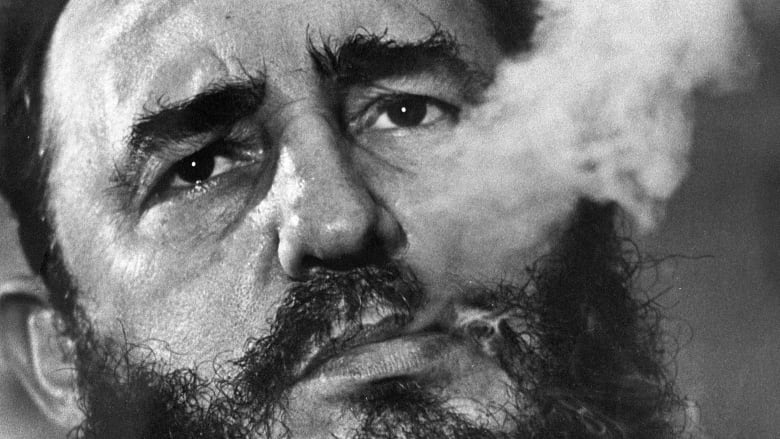How Fidel Castro was portrayed on screen
Divisive figure has been depicted as both an enlightened revolutionary and an autocratic dictator

Fidel Castro, whose death at the age of 90 has prompted both mourning and celebration in different parts of the world, has been portrayed on screen through the decades as an enlightened revolutionary at times and an autocratic dictator at othersimmortalizingthe divisive figure he represented in real life.
The late former Cuban president, whose leadership and influence endured through nearly a dozen U.S. presidencies, even tried his own hand in Hollywood. According to the Internet Movie Database, Castro was an extra in the 1946 movieHoliday in Mexico.But his performance reportedlyended up on the cutting room floor sohe never got an official film credit.
Below is a selectlist of featurefilms,documentaries, andTV series in which Castro was a powerful force.
Che (2008)
Mexican actor DemianBichirtook on the role ofFidel Castro in the two-part 2008 biopic Che, about Argentine revolutionary Che Guevara. The film was directed by Steven Soderbergh, known for Erin Brockovich, Traffic and Ocean's 11,and starred Benicio del Toro.
Thesuccessful film, which some argued sympathized with the revolution,received a polarizingreaction at first.Its initial screenings in New York City and Havana, Cuba were met with standing ovations. Del Toro was awarded best actor at the Cannes Film Festival. However, when the movie debuted in Miamiwhich has a significant Cuban-American community there were protests.
Comandante (2003)
Acclaimed director Oliver Stone did three documentaries featuring Castro, including the infamous Comandante. The film, which centred around aninterview Stone didwith the Cuban leader, premiered at the Sundance Film Festival and was released in 2003. HBO wasset to broadcastthe film but pulled the plug on it at the last minute when a series of political incidents heightened anti-Cuban sentiment in the U.S. at the time.
Stone followed it up withLooking for Fidelin 2004 and Castro in Winter in 2012, in which he returned to Cuba to interview Castro after he stepped down as president.
Fidel (2002)
Castro's political career is chronicled in the historical miniseries Fidel, in which Victor Huggo Martin plays the title role. While the film itself isn't well-known, it spawned a character reprisal that gotmuch more attention a few years later. Gael Garcia Bernal, who played Che Guevara in Fidel, went on to play the role again in the acclaimed 2004 Guevarabiopic The Motorcycle Diaries.
Dear Fidel (2001)
Using archived footage of Castro, this Germandocumentary (originally Lieber FidelMaritas Geschichte, which translates to Dear Fidel Marita's Story)tells a different side of Castro's life through the eyes of MaritaLorenz, a German woman and former CIA operativewho describes being Castro's mistress following the Cuban revolution in 1959.
Her story will be revived by Oscar winner Jennifer Lawrence, who is set to play Lorenz in the upcoming Sony Pictures biographical film Marita. No release date has been set but interest is sure to grow following Castro's death.
Cuba and its musicians
The relationship between Cuba and some of its most renowned musicians has been complicated, with Castro's politics playing a significant role. Sometimespolitical sentiment is captured best without portraying thepoliticians at all, but instead byfocussing on the cultural environment.
The series Celia, a Spanish telenovelathat began in 2015 and that's based on the life of late Cuban singer Celia Cruz, tells the story of her musical roots andleaving her homeland toestablisha successful international career. Along the way, Castro's influence is apparent, particularly when he banned her and other artists from returning to Cuba or being played on Cuban airwaves.
Another musical triumph came much earlier, in 1999, with the release of the Academy Award-nominated documentaryBuena Vista Social Club. The remarkablestory, which focuses on legendary Cuban artists brought together for an album and performances, also illustrated ongoing tensions with the U.S. under Castro's rule.












_(720p).jpg)


 OFFICIAL HD MUSIC VIDEO.jpg)
.jpg)



























































































